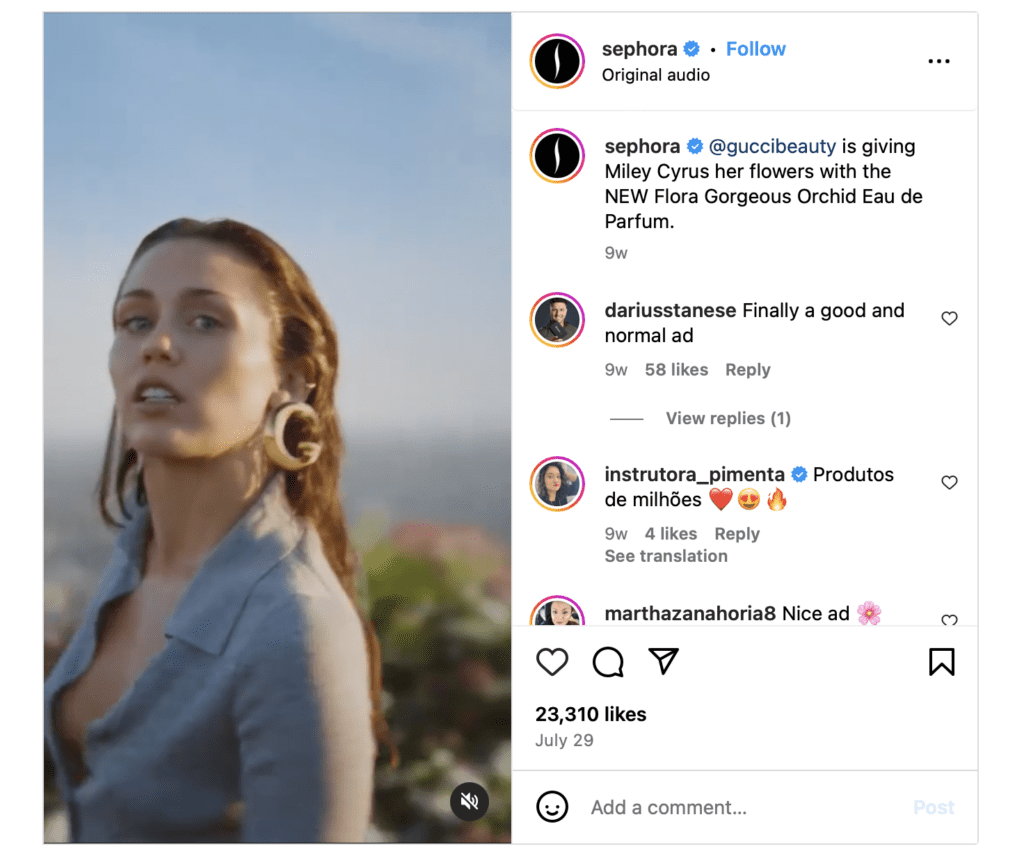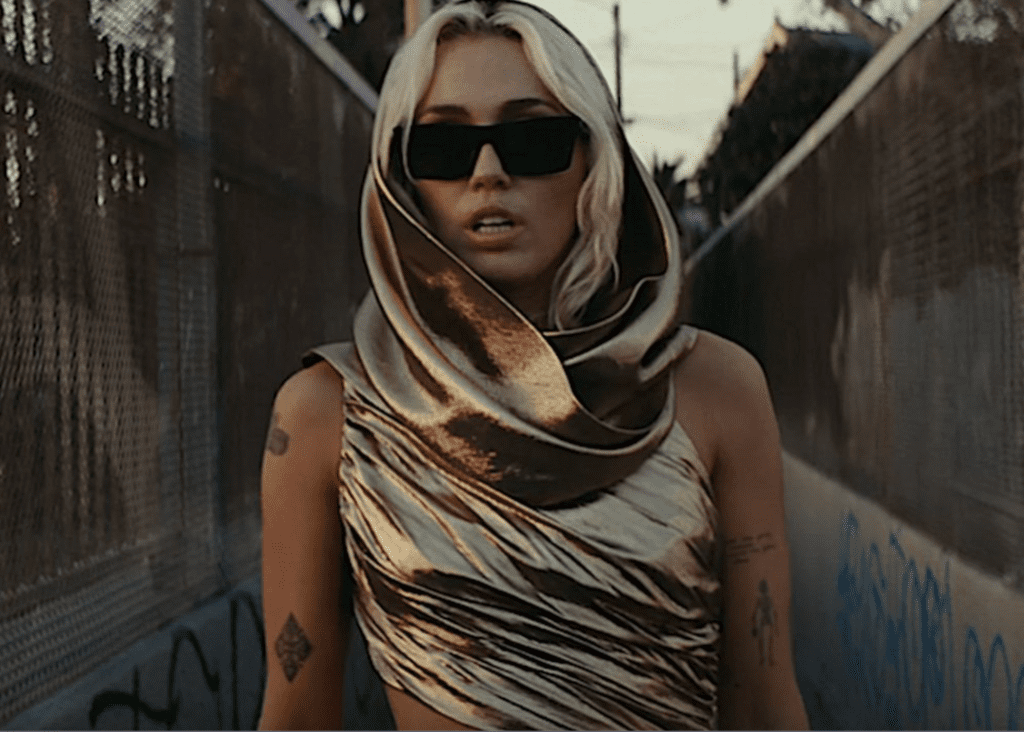Miley Cyrus is on the receiving end of a new copyright challenge that accuses the singer and a slew of other defendants (including Apple, IHEARTMEDIA, Wal-Mart, Disney, etc.) of ripping off a Bruno Mars song to create the “overnight sensation” that is her 2023 hit, “Flowers.” According to the complaint that it filed with the U.S. District Court for the Central District of California on September 16, Tempo Music Investments, LLC claims that Cyrus and co. willfully copied substantial portions of Mars’ song “When I Was Your Man” and now, the music label, which owns a share of the copyright in Mars’ song, is seeking damages as a result.
Hardly a novel situation, copyright litigation is rampant in the music industry, with musicians, songwriters, record labels and other interested parties commonly waging cases over alleged infringement of the composition of songs (i.e., the music and/or lyrics). This has seen artists ranging from Johnny Cash and Led Zeppelin to Ed Sheeran and Robin Thicke and Pharrell Williams hauled into court on copyright infringement grounds. Yet, the case at hand is worthy of attention, as it could have implications that extend beyond Cyrus, her closest collaborators (including Gregory “Aldae” Hein and Michael Pollack), and her label Sony, which are all named as defendants.
In particular, the new music-centric lawsuit sheds light on and raises questions about how far liability can reach in such scenarios.

Some Background: In its complaint, Tempo Music alleges that Cyrus is on the hook for “undeniable” theft “based on the combination and number of similarities between” her and Mars’ songs. Specifically, Tempo claims that “Flowers” “duplicates numerous melodic, harmonic, and lyrical elements” of “When I Was Your Man,” arguing that “‘Flowers’ would not exist without ‘When I Was Your Man,’” and calling the track an unauthorized “derivative work.” In fact, the record label – whose roster includes Bruno Mars, Alicia Keys, Jonas Brothers, Florida Georgia Line, and Ariana Grande, among others – argues that “any fan of Bruno Mars’ ‘When I Was Your Man’ knows that Miley Cyrus’ ‘Flowers’ did not achieve all of that success on its own.”
The complaint goes on to emphasize how “Flowers” copies significant lyrical elements from “When I Was Your Man.” For example, the lawsuit compares Bruno Mars’ lyrics – “That I should have bought you flowers” – to Cyrus’ words – “I can buy myself flowers” – arguing that the lyrical inversion, along with similar harmonic structures, give rise to unauthorized copying.
What is the Risk for Brands?
Cyrus may face the brunt of the legal action at least when it comes to news headlines, but all of the defendants are targeted by Tempo’s single copyright infringement cause of action. And what might be just as interesting as the parties that have been named as defendants in the lawsuit, are other parties that are not named in the complaint but that could be impacted by the outcome of the case, nonetheless. Companies like Gucci, for instance, which features Cyrus and “Flowers” in a currently-running commercial for its Flora fragrance, and Sephora, which is running the Gucci campaign to promote the Flora fragrance that it stocks in its store and online, may not necessarily be in the clear.

Robert Meitus, who teaches entertainment law at the University of Indiana School of Law and also serves as a partner at Meitus Gelbert Rose LLP, told TFL that though a company like Gucci might not be named in the lawsuit at hand, it is “absolutely” still considering the legal implications of the case because of the risk and liability that could stem from litigation like this.
For instance, they are likely considering whether there is greater value to keep any “Flowers”-soundtracked campaigns running or to discontinue them. And at the same time, “even if they are not named as defendants, companies that have used the song are undoubtedly deliberating and talking with the lawyers for Miley, Sony, and/or Warner,” Meitus said, noting that brands are likely asking questions along the following lines: “Are you going to indemnify us, pay for our lawyers? Can we share a defense? Does your insurance have a joint defense clause that allows your lawyers to defend us, as well?”
These conversations are happening because brands and retailers that find themselves associated with potentially infringing works could eventually face liability, according to Dr. Shubha Ghosh, director of the Syracuse Intellectual Property Law Institute. Louis Vuitton, for example, was named in a since-settled lawsuit for allegedly making unauthorized use of a song in a 2021 advertising campaign starring Chiara Ferragni. In a complaint filed with the U.S. District Court for the Southern District of New York last year, music publisher Discomoda U.S.A. Corp., Claudio Gamez, Julio Andres Morean Sosa, Carlos Morean De Las Casas, and Johann Morean De Las Casas alleged that the French luxury brand co-opted Por Alguien Como Tu – a copyright-protected musical composition co-authored by Gamez and Morean and recorded in 1970 – for an advertising campaign for its “Archlight Slingbacks.”
In the event that Tempo prevails in the case at hand, companies like Gucci will not be able to run the ad unless they compensate the copyright owner, which would be Bruno Mars’ production company. But beyond that, Ghosh points out that Gucci and co. could also face liability if Tempo wins and is subsequently able to show that they “knew or should have known” that the song was infringing and did not stop using it for their advertising campaigns.
“If companies continue to run the ad at this point, Bruno Mars’ label could have a good argument to make that they should have known, or maybe that they knew, that it was infringing,” Ghosh said.
Legal issues aside, brands could also suffer reputational consequences for their association with copyright controversies. It has happened before: When “Old Town Road” by Lil Nas X skyrocketed to fame, for example, Wrangler quickly jumped on the opportunity to collaborate with the artist for a special edition clothing line. However, shortly thereafter, the song became embroiled in a copyright dispute over an uncleared sample from Nine Inch Nails’ “34 Ghosts IV.” Though the legal matter was settled quietly, Wrangler faced backlash from some consumers who objected to the brand’s association with Lil Nas X – an affiliation that was not exactly helped by the infringement controversy.
With the foregoing in mind, Ghosh said that companies need – and often have – methods to help avoid this type of situation. For instance, most companies conduct clearance reviews whenever they create an advertising campaign to ensure that it is permitted to run the ad. This not only requires a company to clear the campaign in its entirety from a copyright, trademark, and right of publicity perspective, but to also clear any individual elements of the work that may be subject to legal protections and thus, will require authorization and/or a license.
As a final point, Ghoush and Meitus both emphasize that indemnity clauses in contracts between artists like Cyrus and companies that use their work offer protections. Even though named defendants can face secondary liability, strong indemnification clauses in the original licensing contracts for the work would protect them, per Meitus, who says that, as a result, companies like Gucci are likely not “too worried.” While they “could be liable, they would most certainly be indemnified” by Cyrus, Sony, and co., thereby, minimizing risk for them in the event that situations like this come up.
A representative for Gucci was not immediately available for comment.
The case is Tempo Music Investments, LLC v. Miley Cyrus, et al., 2:24-CV-07910 (C.D. Cal.).














